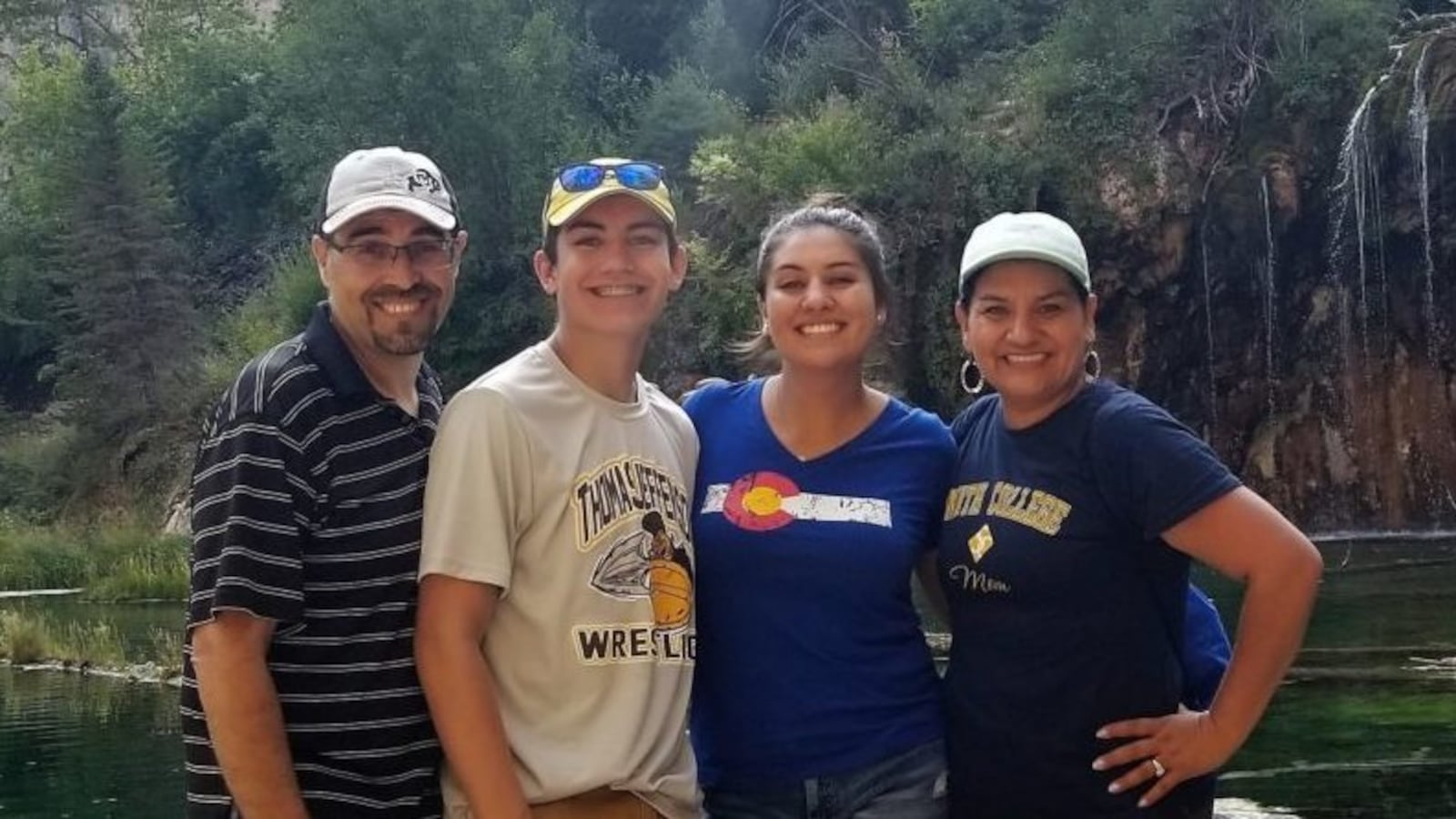The president of a local nonprofit organization that provides after-school and summer tutoring and enrichment programs to hundreds of Denver students is running for school board in southeast Denver, where she grew up and raised her own children.
Diana Romero Campbell has spent her career working for organizations that aim to improve the lives of children, including the Colorado Children’s Campaign, the Mile High United Way, and now Scholars Unlimited. She is a Denver Public Schools graduate whose youngest child attends her alma mater, Thomas Jefferson High School.
Unlike other candidates who said they were motivated to run because the district is falling short, Romero Campbell did not express significant concerns about Denver Public Schools. Instead, she said she’s focused on how the district can bring together different groups — parents, teachers, city leaders, and especially students — to come up with solutions.
“It’s not so much whatever decision comes down the pike,” Romero Campbell said. “I believe it’s how you go about making those decisions.”
Romero Campbell is running for the seat held by board President Anne Rowe, who is barred by term limits from running again. Two other candidates are also vying for the seat: Scott Baldermann, who previously served as president of the parent-teacher association at his children’s school, and Radhika Nath, a mother who has a doctorate in public policy and works in health care. Candidate Kristi Leech dropped out of the race in July.
Baldermann and Nath have both aligned themselves with groups that want to “flip the board” in November and change the direction of the district, which has closed low-performing schools and replicated high-performing ones — including charter schools — in an effort to improve.
Romero Campbell was less explicit about her political stance. Asked about the direction of the district, she said previous leaders “made decisions with the information they had in front of them. As a new board, there will be new information.”
“My background and work experience has been around, ‘How do we bring people together to find solutions?’” Romero Campbell said. “When we make it a win-lose game, then who ends up losing? If it’s at the price of having students lose, I’m not for that.”
Charter schools are a hot-button issue in Denver because some community members believe the independently run public schools siphon money and students from traditional public schools. Romero Campbell said her view is that “charters are part of our ecosystem.”
“I know people who love their district-run school and will die on the sword for it — the same for charters,” Romero Campbell said. For her, she said, the question is, “Do we have the highest-quality schools, whether it be charter or district-run, and are they doing right by kids?”
If a school is struggling, Romero Campbell said the district should assess what it’s already done to support the school, and ask parents and students what more could be done. As for school closure, she said, “I don’t think anything should ever be taken off the table.”
Romero Campbell sent her own children to a district-run dual-language Montessori elementary school outside their neighborhood. As a bilingual parent, Romero Campbell said she helped bridge a divide between English-speaking parents who were very involved in school fundraising and Spanish-speaking parents who felt left out.
The result, she said, was that Spanish-speaking parents took ownership of some of the school’s events, such as the noche de libros, organizing the events and providing translation for the English-speaking parents, rather than it always being the other way around.
When her children were young, Romero Campbell was a stay-at-home parent who also provided child care for her niece. That experience helped shape her professional life, including her role at the Mile High United Way, where for more than 10 years she was in charge of grant-making in the areas of homelessness, housing, and school readiness.
While there, she helped convince Denver voters to pass a tax to fund the Denver Preschool Program, which provides tuition assistance for 4-year-olds. She also worked to improve the quality of “family, friend, and neighbor care,” which was the subject of her doctoral dissertation.
Two years ago, Romero Campbell took the top job at Scholars Unlimited. This summer, she said the organization is providing free academic tutoring and enrichment programs such as swim lessons and field trips to more than 1,000 students in Denver, Aurora, and Westminster.
Romero Campbell has more experience with district policy than her competitors. She has served on several committees and was co-chair of one that made recommendations for addressing the effects of gentrification on Denver schools. She said those experiences drove home the power of community voice — a value she’d like to see embraced at the school level.
In addition to the open seat in southeast Denver, two other seats on the seven-member school board are up for grabs in November. No incumbents are running.
Candidates must file at least 67 days before the election, which means candidates could join the race as late as August. Thus far, three candidates are vying for the seat representing northwest Denver. It is currently held by Lisa Flores, who is not running for re-election.
Three other candidates are competing for the at-large seat currently held by Happy Haynes, who is also barred by term limits from running again.

